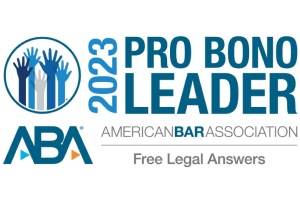for Workers
Race Discrimination
As a worker in the United States, you deserve a fair work environment free of racial animus or retaliation. Unfortunately, some employers disregard employees’ legal rights by refusing to investigate unlawful race discrimination in the workplace. Race discrimination in employment is prohibited by federal and Tennessee law. Under these employment laws, an employer is prohibited from taking any adverse action against you because of your race.
Race discrimination flourishes in some workplaces and often reveals itself when employees are subjected to:
- Blatantly racist language, including the n-word
- Stricter supervision, including closer scrutiny and nitpicking
- More severe discipline compared to others
- Fewer promotional opportunities
- Denial of pay raises or preferred shift opportunities
- Unequal pay compared to others
- Retaliation after complaining about such discrimination and mistreatment
Our Nashville workplace discrimination lawyers fight for victims of race discrimination at work. Our proven track record of successfully fighting for victims of workplace discrimination has resulted in highly satisfied clients.
Overview of Federal and Tennessee Anti-Discrimination Laws
Employees in Tennessee are protected against race discrimination by Title VII of the Civil Rights Act of 1964 (Title VII), Section 1981 (42 U.S.C. § 1981), and the Tennessee Human Rights Act (THRA).
Race Discrimination Protections under Federal Law
Title VII of the Civil Rights Act of 1964 (Title VII) is a federal anti-discrimination law that applies to employees across the U.S.
- Prohibits race and color discrimination in the workplace
- Only applies to employers with 15 or more employees
- Covers private and government employers
- Requires a charge be filed with the EEOC before filing suit in court
- 180 or 300 day statute of limitation (300 days in Tennessee)
- Prohibits severe or pervasive workplace harassment
- Punitive and compensatory damages are capped based on size of employer
42 U.S.C. § 1981 is a federal law that:
- Prohibits intentional race discrimination in employment
- Applies to private employers
- Does not cover government employers
- Does not require a charge be filed with the EEOC
- Has a four-year statute of limitations
- Prohibits severe or pervasive workplace harassment
- Has no cap on punitive and compensatory damages
Race Discrimination Protections Under the THRA
The Tennessee Human Rights Act is Tennessee’s primary anti-discrimination law that prohibits race discrimination in employment.
- Generally construed identically with Title VII
- Applies to employers with 8 or more employees in Tennessee
- Filing a discrimination complaint with the Tennessee Human Rights Commission is optional, but claims must be filed in court within one year
- Punitive damages are not available
- Damages for emotional pain and suffering are capped
Our Nashville-based workplace discrimination lawyers file race discrimination complaints on behalf of Tennessee workers with the Equal Employment Opportunity Commission (EEOC), and then federal court, for claims under Title VII, Section 1981, and the THRA.
Unlawful Retaliation for Reporting Race Discrimination
Federal and state law prohibit retaliation against an employee who reports workplace discrimination, including filing a charge with the EEOC, reporting race discrimination to human resources, or bringing a lawsuit against the company. As such, you cannot be legally treated poorly for complaining about the discrimination.
How Much Money is a Tennessee Race Discrimination Case Worth?
The value of a given race discrimination case varies significantly based on many factors, but there are four general categories of damages in race discrimination cases: (1) economic (back pay and front pay); (2) compensatory (emotional pain and suffering); (3) punitive (to punish and deter future unlawful conduct); and (4) attorneys’ fees and costs.
Note that compensatory and punitive damages for Title VII and THRA claims are subject to a combined monetary cap by statute. The capped amount is based on the size of the employer as follows:
- 8-14 employees ($25,000)
- 15-100 employees ($50,000)
- 101-200 employees ($100,000)
- 201-500 employees ($200,000)
- 501 or more employees ($300,000)
These limits do not apply to claims filed under 42 U.S.C. § 1981.
Employer Duty To Notify Employees of Their Workplace Rights
Employers who are covered by federal employment laws are required to post notice of anti-discrimination laws in the form of the “EEO is the Law” poster. This mandatory poster is prepared by the Equal Employment Opportunity Commission and must be placed in a conspicuous location where notices are customarily posted. Employers must also keep all payroll records for a minimum of three years and all wage calculation methods for at least two years.
It’s Time to Fight Back Against Unlawful Race Discrimination
You deserve compensation and justice for the race discrimination you have endured. Take action today by contacting our race discrimination lawyers in Nashville at the number above or online for your free online case review.














